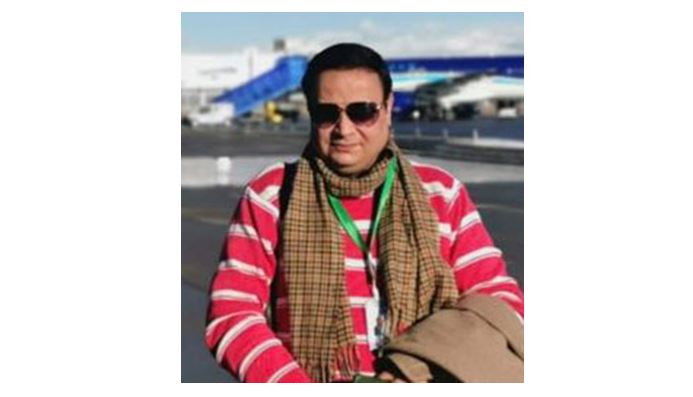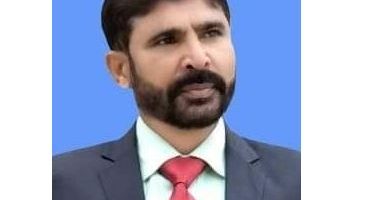Real Spirits of Uzbekistan’s Constitution

Dr. Mehmood Ul Hassan Khan
Constitution is the “Bible” of modern democratic political system. It regulates functions of the different organs of the “State”. It upholds “checks & balances”. It strengthens “separation of powers” It protects the basic right of the people. Constitution of the Republic of Uzbekistan is the ideal combination of all the golden principles of modern political system based on participatory democracy, accountability, respect for people’s will, people’s friendly and above all “custodian” of common people’s socio-economic prosperity and political association.
Constitution of Uzbekistan was promulgated in 1992 which reflected the collective political wisdom of its political parties and people alike. It stood for fair play, equal rights, social justice and above all democratic principles.
It guarantees basic civil rights, freedom of press and association and last but not least, rights of the minorities in the country. It provides “blue print” to a newly independent country, Uzbekistan to move forward to achieve the desired goals of socio-economic prosperity, reduction in poverty, high exports, empowerment of women through Small and Medium Enterprises(SMEs), and last but not least, political stability.
The constitution of Uzbekistan now stands as a viable legal framework in providing spiritual, social and political progress, and most importantly, sustainable economic development and welfare of the people.
The rich historical path of development of the Uzbek statehood, modern ideas of constitutional development, universal democratic principles, as well as advanced constitutional experience of developed countries were taken into account in developing the Basic Law in the constitution. It is the basis for stable and sustained development of the country on the path of democratic development, the implementation of the principle ‘From a Strong State to a Strong Civil Society’.
Its preamble says the people of the Republic of Uzbekistan, solemnly declaring their commitment to human rights and the principles of state sovereignty, aware of their ultimate responsibility to the present and the future generations, relying on historical experience in the development of Uzbek statehood.
It affirms their commitment to the ideals of democracy and social justice, recognizing priority of the generally accepted norms of the international law, aspiring to a worthy life for the citizens of the Republic. It sets forth the task of creating a humane and democratic rule of law, aiming to ensure civil peace and national accord, represented by their plenipotentiary deputies adopts the present Constitution of the Republic of Uzbekistan.
Uzbekistan’s constitution is forward looking and pragmatic. It has been played an important role in the overall socio-economic and geo-political transformation since its inception. It regulates the most important public relations among citizens, society and the state. It establishes the foundations of the constitutional system and the principles of organization of state power. It is the foundation upon which rests the legal and political system, the system of the protection of the rights, freedoms and lawful interests of individuals.
It has six parts and 26 chapters covering all aspects of politicization and democratization, protection of basic human rights, concept of citizenship, salient features of foreign policy, equitable division of different organs of the state, political, social and economic rights, decentralization of local bodies, defence and security etc.
According to its constitution, Uzbekistan is a presidential democracy with a bicameral i.e. two elected houses of parliament (Oliy Majlis, and Senate). The Main Law has laid the foundation for human rights and freedoms, peace and harmony in the society, which allows the constructive work in political, economic and social spheres. The Constitution also defines the parameters of political and legal system, public authorities and development of civil society institutions.
The President of the Republic of Uzbekistan H.E. Shavkat Mirziyoev signed the Law “On introducing amendments and additions to the Constitution of the Republic of Uzbekistan” on 6 April 2017. The document was adopted by the Legislative chamber on March 17 and approved by the Senate on March 28, 2017.
Amendments to the Basic Law were promulgated in accordance with the presidential decrees dated October 21, 2016 “On measures for further reforming the judicial-legal system, strengthening guarantees of protection of the rights and freedoms of citizens” and dated February 21, 2017 “On measures to radically improve the structure and efficiency of the judicial system of the Republic of Uzbekistan”.
The main purpose of the said amendment was to improve and increase the efficiency of the judicial system, further strengthening the judiciary and ensuring genuine independence of the judiciary in the Republic of Uzbekistan. It contained fundamental provisions on the implementation of the tasks defined in the Action strategy of five priority directions of development of the Republic of Uzbekistan in 2017-2021, where the extension of the guarantees of reliable protection of the rights and freedoms of citizens, increasing their access to justice, efficiency and quality of judicial processes, further improving the system of selection of candidates and appointment of judges have been secured as the key areas of reforms in judicial-legal sphere.
Right from the beginning it incorporated the fundamental provisions of the Universal Declaration of Human Rights and other fundamental international instruments, the Constitution preserves the priority of human rights, interests and freedoms over state interests and defined by its main essence to create decent living conditions for the people and proclaimed the social justice principles. Its constitution is the continuation of its centuries-old traditions based on democracy, humanism, freedom, tranquility, equality and above all respect for minorities. It is ideal combination of east-west in terms of golden traditions of Uzbekistan and modernity of the west i.e. democratic principles.
Right from the beginning, radical reforms were promulgated and implemented to liberalize the legal system. The independence of the judiciary and specialization of courts were institutionalized, turning it into a truly independent institution reliably protecting human rights and freedoms. More than 16 codes and more than 600 laws have yet been adopted, and over 80 international human rights documents were ratified.
The Constitution has also cemented the principles of the national, multi-structured economy, set the priority of private property by establishing conditions for a decisive transition from unjustified, bankrupt, centralized, command-and-distribution system to a free market economy. President H.E. Shavkat Mirziyoev introduced many meaningful reforms in the country which has actually revolutionized its macro-economy, further strengthened independence of judiciary, empowerment of parliament, further strengthening the spirits of accountability and the last but not the least, people’s friendly policies.
Now, Uzbekistan is politically more strong and stable. It is economically more sustainable. It is societally more open and interactive. It is administratively more people’s friendly. It has now more profitable propositions for regional as well as international investors to invest in the country most importantly small business and private entrepreneurship have turned into crucial sector of country’s gross domestic product structure, covering the majority of the socially active population. SMEs share in GDP is now more than 55.8 percent and 75 percent of its population engages in SMEs sector.
High social development is the resultant of its constitution. Poverty has been reduced and marginalized. Now, it has enterprising “middle class” in the region which personal and private rights are protected. Immense social development has further strengthened the politicization and democratization process in the country. Currently, the GDP of Uzbekistan, compared with 2000 has increased by more than 3.5 times, per capita more than 3.0times, the volume of exports by 4.4 times, nominal wages in comparable prices by 22 times, the average pension 12.7 times, while real income per capita 8.4 times. Uzbekistan is among the few countries worldwide which managed to ensure for the last 5 years the GDP growth on average of 8.3 percent, and in this year it will be around 8.1 percent. Furthermore, recently “free-floating” of its national currency has achieved more financial and banking stability in the country.
New President Mirziyoyev issued decrees aiming at the improvement of the business climate in Uzbekistan. The creation of four new free economic zones was announced In November 2016. New tax reforms have been announced as well as decisions to invest in a modern IT infrastructure and a national “Silicon Valley.”
The “Strategy for the further development of Uzbekistan in 2017-2021” has been announced in February 2017. It stressed the need to improve the efficiency of the state to enhance people’s trust. Reforms of the law enforcement system particularly the police have been set up, and an anti-corruption program has been launched.
Constitutional amendments introduced a Supreme Judicial Council and expanded the powers of the Constitutional Court. The newly created “virtual receptions” of the president and other offices became very popular, serving as “public complaint boxes.”
Uzbekistan has been taking leading role in introducing and implementing different legal reforms in the country in the CIS. Its constitution reflects the collective wisdom of its rulers and people alike. It promises the basic necessities of life. It assures free education, health and life. It is anti-discriminatory. It is people’s friendly. It is business and investment friendly. It guides all the organs of the state and strengthens democratic transition in the country. It portrays inspirations of its people. It guarantees the fulfillment of all the dreams of its people.
The Economist (2019) named “UZBEKISTAN COUNTRY OF THE YEAR”. Child labor has now been eradicated. Brain-drain has been reversed. It has no political prisoner. Contributory role in the socio-economic growth of Afghanistan has further strengthened its regional and extra regional diplomatic posturing.
Uzbekistan has become the world’s number one exporter of gold and the recent increase in the metal’s value owing to the Covid-related increase in global demand has led to a remarkable indicator of its economic health due to which Uzbekistan was the almost unique country not to record a recession during the Covid crisis. The government of Uzbekistan has now achieved optimal level of diversification of national economy i.e. metamorphose from exporting raw materials to manufacturing products and launching a hi-tech sector.
Constitution of Uzbekistan guarantees the FDIs and domestic funds. It encourages private sector participation, transparency, productivity and increased privatization of state industries. It has now joined the accepted indexes such as FTSE and MSCI.
Being prominent regional expert of Uzbekistan & CIS I uphold that the constitution of the Republic of Uzbekistan has great significance in terms of political stability, creation of absolutely new national statehood, forming of political and economic system based on democratic principles and last but not least, legal framework to move forward after independence. Uzbekistan succeeded to maintain unmatched political stability in the CIS and South Caucasus and continuation of economic reforms because of the constitution and consistent implementation of laws adopted on its basis.
Related News

America and the Future of Artificial Intelligence
Dr. Muhammad Akram Zaheer Everyone seems to have a theory about artificial intelligence. Some imagineRead More

The Vision Gap in Pakistan’s Classrooms
Nadia Mustafa Thalho Pakistan’s education policy today suffers from a quiet but troubling contradiction. OnRead More


Comments are Closed